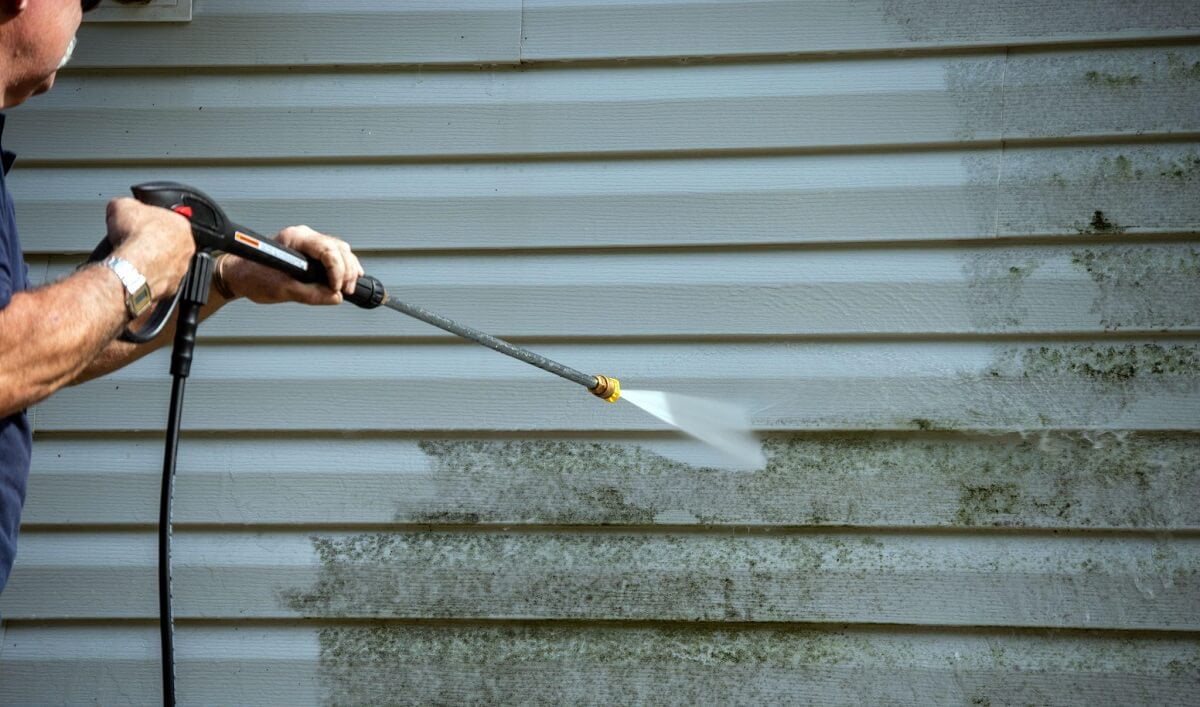Start The Process
Submit your contact details & we'll reach out to you shortly.

In the world of exterior cleaning services, two terms often trigger confusion: power washing and pressure washing. These terms are frequently used interchangeably, leading many to believe they refer to the same process. However, despite their similarities, they are not identical. This article aims to delve into the specifics of power washing vs pressure washing, shedding light on their differences and helping you make an informed choice.
Before we dive into the nuances of power washing and pressure washing, let’s cover some basics. Both of these methods utilize a high-pressure water spray to clean various surfaces, eliminating dirt, grime, mold, and other unwelcome elements. While they operate on similar principles, the key differentiator is the water temperature.
Power washing relies on heated water, while pressure washing uses normal temperature water. The heat in power washing aids in cleaning, making it more efficient in removing stubborn substances. This difference significantly affects how each method is used and the results achieved. Understanding these differences is crucial when deciding which method to use for your cleaning needs.
Power washing, as the name suggests, employs both power (high pressure) and heat to carry out its cleaning work. The heated water used in power washing makes it particularly effective at blasting away stubborn dirt, grease, salt, mildew, and even chewing gum. It’s this combination of heat and pressure that makes power washing more suited to heavy-duty tasks.
The principle behind power washing is simple yet highly effective. The machine heats up water to a high temperature and then ejects it at high pressure. This heated, high-pressure water is excellent at dissolving and removing materials like grease and mold.
The heat and pressure combination is so effective it can even kill weeds and moss, making power washing an excellent choice for cleaning and maintaining driveways, patios, and outdoor furniture. However, due to its aggressive nature, power washing is not recommended for softer surfaces that might get damaged by the heat or high pressure.
In contrast to power washing, pressure washing uses high-pressure water without the heat. Despite the lack of heat, pressure washing is still highly effective at removing dirt, dust, and grime from various surfaces.
Pressure washing operates on the principle of force. The machine uses high water pressure to blast away dirt and other materials from surfaces. Since the water is not heated, pressure washing may not be as effective against substances like grease or oil, but it does a remarkable job removing dirt and grime from various surfaces.
The choice between power washing and pressure washing depends on the specific cleaning task at hand. Power washing is suited for large, heavily soiled areas that can handle high pressure and heat, like concrete driveways or industrial spaces. On the other hand, pressure washing is suitable for general household cleaning like washing cars, cleaning decks, or rinsing off siding without the risk of heat damage.
Whether you require power washing or pressure washing services, ProClean Plus is here to serve your cleaning needs with professionalism and efficiency. We are committed to delivering top-notch cleaning services that enhance the beauty and longevity of your property.
To learn more about our services or to schedule a cleaning, contact ProClean Plus today at 413-384-9274!
In conclusion, while power washing and pressure washing might seem similar at first glance, understanding their differences can help you make the best choice for your specific cleaning requirements. The key lies in knowing the nature of the surface to be cleaned, the type of dirt or grime present, and which method is most suitable. With this knowledge, you can ensure a thorough, efficient clean that enhances the beauty and longevity of your property.